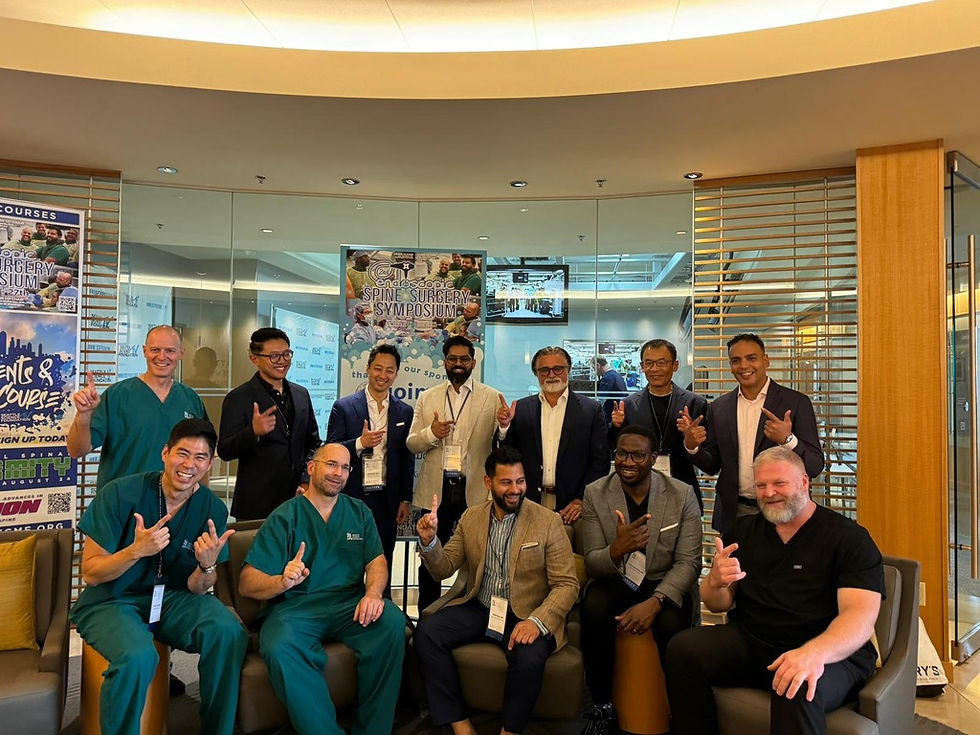Meet the International Spinal Endoscopy Research Foundation
- Oct 7, 2024
- 2 min read
Spinal endoscopy, a minimally invasive procedure that allows surgeons to diagnose and treat spinal conditions through small incisions, has been revolutionizing the field of spinal surgery. The International Spinal Endoscopy Research Foundation (iSERF) is at the forefront of advancing this innovative technique and shaping the future of spinal endoscopy.

iSERF, a nonprofit organization, is committed to promoting excellence in spinal endoscopy through education, research, and collaboration. One of the standout offerings from ISERF is its prestigious traveling fellowship program, which provides aspiring spinal surgeons with the opportunity to train with leading experts in the field across different countries. This invaluable experience allows fellows to gain hands-on skills, knowledge, and insights that will shape the future of spinal endoscopy.
Each year, iSERF hosts an annual symposium that brings together top experts, researchers, and practitioners in spinal endoscopy from around the globe. This cutting-edge event serves as a platform for sharing the latest advancements, discussing best practices, and fostering collaborations that push the boundaries of spinal endoscopy. The symposium also features workshops, presentations, and networking opportunities for attendees to deepen their understanding and expand their professional networks.
In addition to its fellowship program and annual symposium, iSERF provides a wealth of resources for spinal surgeons to enhance their practice and stay abreast of the latest developments in endoscopic spinal surgery. From educational materials and research publications to training videos and case studies, iSERF equips surgeons with the tools and knowledge they need to deliver the best possible care to their patients.
To keep the public informed about its activities and the advancements in spinal endoscopy, iSERF will launch a blog/news feed on its website. This platform will feature insightful articles, interviews with experts, patient stories, and news updates related to spinal endoscopy. By sharing compelling and informative content, iSERF aims to raise awareness about the benefits of spinal endoscopy and inspire the next generation of spinal surgeons. Visitors to the iSERF website can expect a modern, visually appealing design with a white background and a color palette of red, golden yellow, and black.
The site will also include an events calendar highlighting upcoming symposium dates, a resources section with valuable materials for surgeons, and a blog/news feed to engage and educate the public. In conclusion, the International Spinal Endoscopy Research Foundation is a driving force in advancing the future of spinal endoscopy. Through its fellowship program, annual symposium, resources for surgeons, and upcoming blog/news feed, iSERF is committed to pushing the boundaries of spinal endoscopy and improving patient outcomes worldwide.
Comments